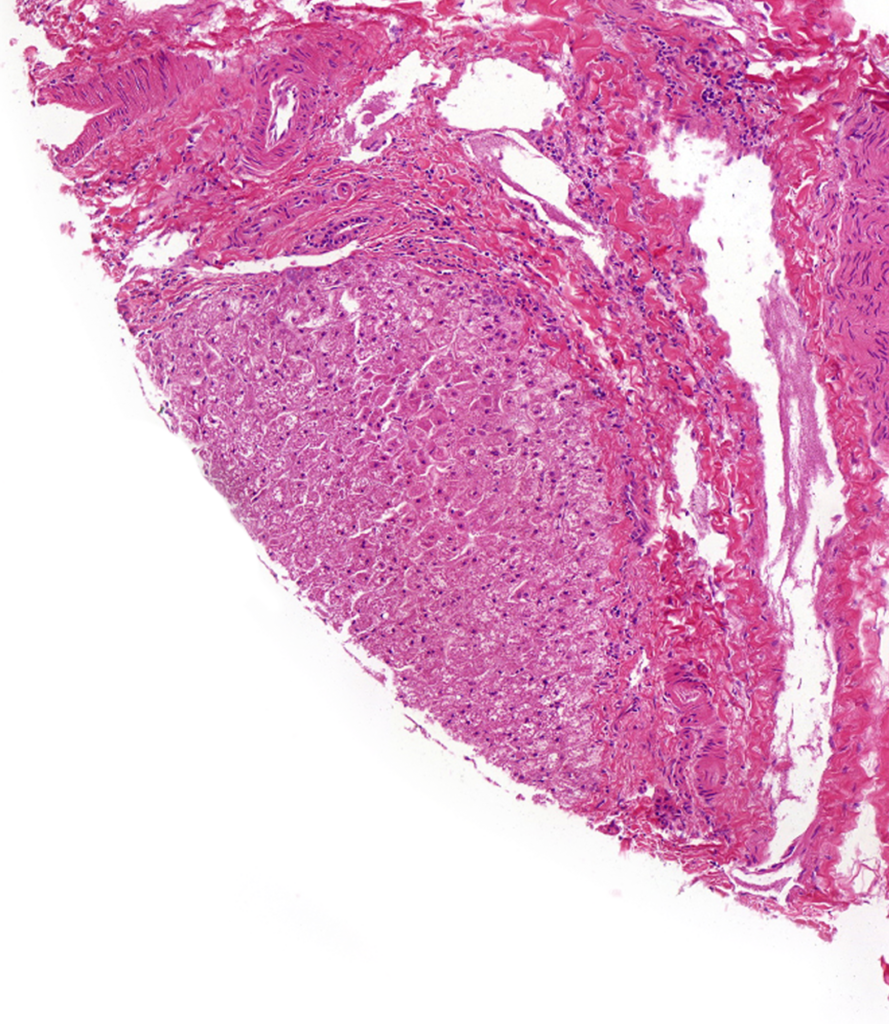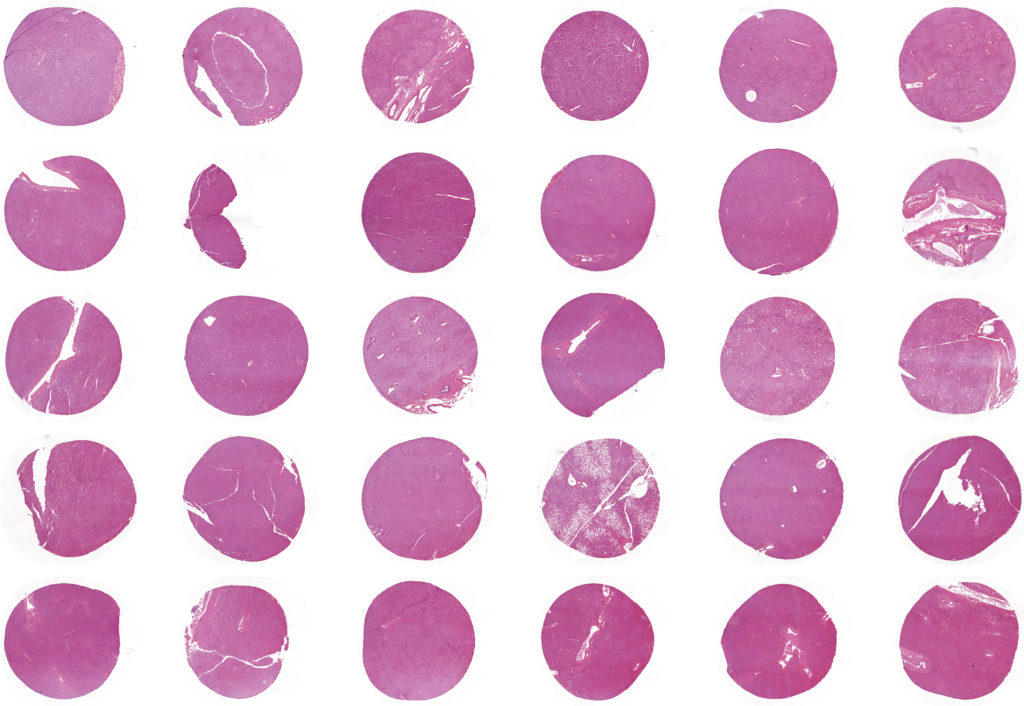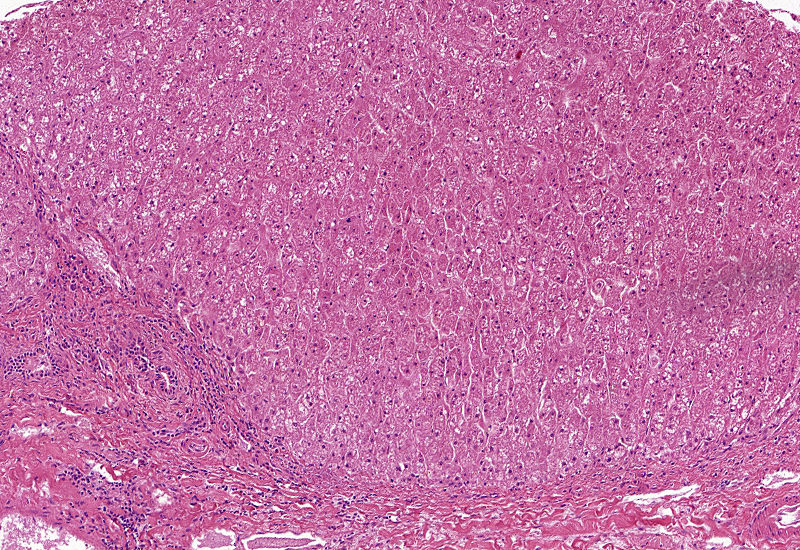Our Research Biobank is committed to providing normal and diseased Human tissue samples for scientific investigation. We currently offer tissue microarrays and various preparations of liver tissue, representative of healthy or diseased organs for use in various drug development or disease research applications, including non-alcoholic steatohepatitis (NASH), non-alcoholic fatty liver disease (NAFLD), and others.

Research Biobank Liver Tissue for Drug Development and Liver Disease Research
Tissue Microarrays
Tissue microarrays (TMAs) are convenient tools to study disease biomarkers across well-defined patient populations paired with the proper healthy controls. We are proud to support basic research into fatty liver disease, diabetes, pediatric liver disease, and other areas by offering high-quality test systems and published research to help improve the availability of representative tissue samples and relevant test systems.
Tissue Preparations
Tissue Preparations of human liver tissue samples are available as prelysate (whole snap-frozen pieces) tissue frozen in a buffer of choice appropriate for the downstream assay.
Other NASH Test Systems
Hepatocytes from NASH donors (noted in green), as well as a pool of human liver microsomes and S9, have been prepared for drug developers to investigate compound metabolism in the proper phenotypic disease background and account for potential changes to metabolic enzyme activities due to the disease progression. These test systems have the potential to be convenient in vitro models of the aforementioned diseases. They can also be important tools for scientists interested in disease biomarkers and in vivo / in vitro correlation of disease biomarker expression with the aim of advancing studies of ailments linked to obesity and alcohol consumption. Control pool of healthy donors is also available.
Research Biobank: An Expansive Collection of Characterized Tissue Samples for Disease State Research and Drug Development
Through the establishment of the Research Biobank, we seek to provide the research community with a collection of high-quality human liver tissue specimens and arrays representing early through advanced stages of alcoholic or non-alcoholic fatty liver disease, diabetes, and pediatric liver disease.

Samples we assemble are available in quantities larger than those obtained during needle biopsies and come from organs initially intended for transplantation, ensuring quality and higher volume of tissue representative of the same donor. Our tissue specimens are collected in a timely manner with precise care taken to minimize downtime and preserve tissue quality. These circumstances of tissue harvest distinguish our biobank from human tissue samples collected in a typical post-mortem, usually associated with several hours of warm ischemia.
The tissue samples and microarrays from Research Biobank allow for the analysis of expression of drug targets and early markers of fatty liver diseases across diverse populations of US liver donors. Tissue samples and tissue arrays come with pathologic diagnosis, demographics, BMI, history of diabetes and alcohol use data. Representative microphotographs are also available for each specimen. A selection of normal tissues is collected to satisfy requirements of a control population. Separate categories of diabetic and pediatric donors, age 1 month to 11 years old, are available for specialized investigations in these groups.
How we characterize normal vs diseased tissue
Tissue classifications reflect only major features of fatty liver disease, these tissues may have characteristics of other liver disease(s).
Learn more about disease-state test systems
Watch our webinars from in-house experts covering Research Biobank tissue applications in fatty liver disease research or download our poster comparing average microsomal CYP activities in diseased liver tissue using human liver microsomes from our NASH donor pool. More publications, webinars, posters, and other scientific resources related to this topic can be found in Access ADME™: Disease-State Research.

